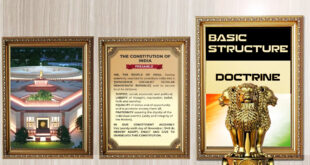The new IPCC report makes it clear that the path forward offers no simple or easy solutions
The Intergovernmental Panel on Climate Change (IPCC) has just released a special report on global warming of 1.5°C over pre-industrial temperatures. Produced speedily, it provides details on how the global response to climate change needs to be strengthened within the broader context of sustainable development and continuing efforts to eradicate poverty. The impacts of 1.5°C of warming and the possible development pathways by which the world could get there are its main focus. It was in 2015, at the Paris climate conference, that the global community made a pact to pursue efforts to limit warming to within 1.5°C — half a degree below the previous target of 2°C. With the increase in extreme events and the very survival of small islands at stake, the lower limit was greeted then with surprise and enthusiasm. For most people, the difference between 1.5°C and 2°C may seem trivial when daily temperatures fluctuate much more widely. However, the reference here is to global average temperatures. Different regions of the earth will warm at different rates. For instance, the Arctic is already experiencing warming that is many times higher than the global average. If nations do not mount a strenuous response against climate change, average global temperatures, which have already crossed 1°C, are likely to cross the 1.5°C mark around 2040. The window of opportunity to take action is very small and closing fast.
There are several mitigation pathways illustrated to achieve these reductions and all of them incorporate different levels of CO2 removal. Emissions need to peak early within the next decade or so, and then drop. These different methods will themselves involve various risks, costs and trade-offs. But there are also many synergies between achieving mitigation targets and fulfilling Sustainable Development Goals. To stay below 1.5°C, the transitions required by energy systems and human societies, in land use, transport, and infrastructure, would have to be rapid and on an unprecedented scale with deep emission reductions. How is the remaining carbon budget, that is the room available in the atmosphere to safely contain more CO2, going to be shared among different countries? This is a difficult question to address, given the contentious nature of the negotiations. It has been reported, for instance, that the U.S. has been obstructionist in the deliberations in Incheon, South Korea, at the recent meeting to determine the final text of the report. The U.S. also reiterated its intent to pull out of the Paris Agreement. Contributions from the U.S. and other rich countries to the Green Climate Fund and other funding mechanisms for the purpose of mitigation and adaptation are vital even to reach the goals of the Nationally Determined Contributions (NDCs) — commitments that each country made prior to the Paris conference. Even if all the NDCs are implemented, the world is expected to warm by over 3°C. Disputes over the implementation of the Paris Agreement at numerous meetings depict the deep divides among rich countries, emerging economies and least developed countries. This special report poses options for the global community of nations, which they will have to contend with in Poland — the next Conference of the Parties. Each will have to decide whether to play politics on a global scale for one’s own interests or to collaborate to protect the world and its ecosystems as a whole. The path forward offers no simple or easy solutions.
Sujatha Byravan is a scientist who studies science, technology and policy
Source : https://www.thehindu.com/todays-paper/tp-opinion/another-warning-on-warming/article25173693.ece
 Chinmaya IAS Academy – Current Affairs Chinmaya IAS Academy – Current Affairs
Chinmaya IAS Academy – Current Affairs Chinmaya IAS Academy – Current Affairs



